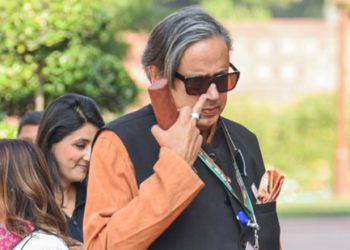Justice Dhananjaya Yeshwant Chandrachud, widely recognized for his progressive approach and dedication to individual rights, retired from his role as the Chief Justice of India (CJI) today. Appointed to the Supreme Court of India in 2016 and becoming CJI in 2022, Justice Chandrachud’s tenure was marked by groundbreaking rulings that strengthened constitutional principles, expanded individual liberties, and redefined the boundaries of fundamental rights in the world’s largest democracy.
One of the most celebrated judgments under his leadership was the landmark decriminalization of Section 377 of the Indian Penal Code, which criminalized consensual same-sex relations. Justice Chandrachud’s opinion underscored that the law violated the fundamental rights of dignity, privacy, and equality for LGBTQ+ individuals, setting a precedent for inclusivity and tolerance. His ruling contributed significantly to India’s path toward a more equitable society.
In another pivotal decision, Justice Chandrachud championed the right to privacy as an intrinsic part of the right to life and personal liberty. In the 2017 Puttaswamy case, the Supreme Court declared privacy a fundamental right, establishing a framework that has impacted subsequent debates on digital privacy, government surveillance, and data protection. This ruling is especially relevant in an era of rapid technological growth, as it provides a legal shield for citizens against potential overreach by the state.
Justice Chandrachud also played a key role in advancing women’s rights and equality. His judgment in the Sabarimala case, which allowed women of all ages to enter the temple, reinforced the idea of gender equality in religious practices. While the ruling received mixed reactions, it was lauded by many as a step toward eliminating gender-based discrimination in religious spaces. Furthermore, his support for the equal representation of women in the armed forces underscored his commitment to gender parity in various sectors.
The Ayodhya land dispute was another significant case Justice Chandrachud presided over. His balanced and measured approach helped achieve a verdict that aimed to foster communal harmony, showing his commitment to preserving the secular fabric of the nation.
Justice Chandrachud’s retirement marks the end of a tenure that left a lasting impact on the Indian judiciary and society. His judgments remain highly relevant, continually shaping legal discourse and safeguarding citizens’ rights.








 India
India












